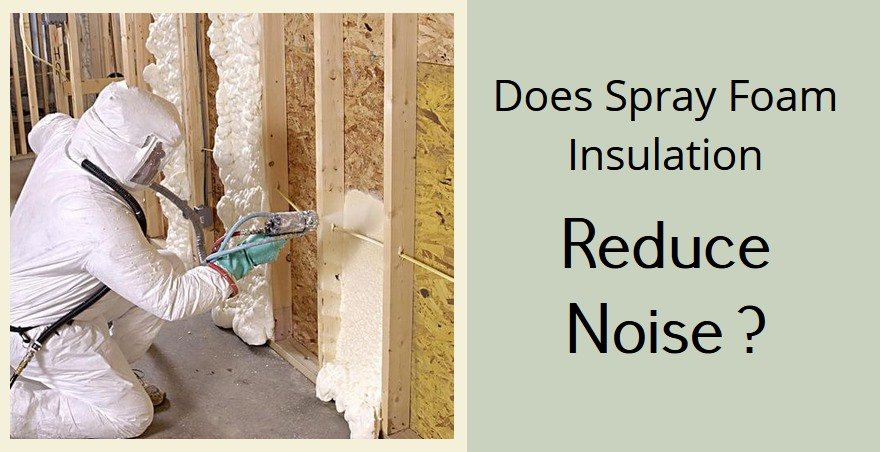In a crowded urban area where the distance between neighbors has been showing a decreasing trend, it becomes more and more critical to control the amount of sound transfer within a construction if you are currently considering different sound insulation options in the market.
Spray foam is one of the available alternatives. However, you may wonder, does spray foam insulation reduce noise effectively? Find the answer below.
Noise Reducing Foam Insulation
Spray foam is a quiet popular type of sound insulation used for noise reduction purposes. Many people consider it as one of the best materials to reduce noise out there due to its capability of blocking excessive sound and maintaining sound quality. It can also expand following the forms of every nook and cranny of a building element to block unwanted noise, unlike materials like fiberglass insulation effectively.

This specific insulation product is available in two variations: open and closed-cell spray foams. Both are made by combining methylene diphenyl diisocyanate (MDI) with other substances such as polyol resins, surfactants, catalysts, and fire-retardants. Both are used by being sprayed into walls, ceilings, cavities, and crevasses of construction, in which the product would expand and harden to prevent airflow.
Spray foam will stop excessive sound waves from penetrating walls by absorbing, blocking, and dampening them. This process takes plenty of mass and may also require you to use decoupling components or layers to prevent the transmission of sound and vibrations.
Both open and closed-celled spray foam insulation act as a sound barrier, but an open-celled one is slightly better at this job. That being said, neither are extremely effective. Even though the lightweight, hardened foam is great at thermal insulating, it doesn’t have enough mass to effectively trap or absorb sound waves.
However, spray foam can reflect some noise, reducing noise transmission from getting into or out of space. Rather than dampening sound, it increases the sound resonance. In addition, the foam sticks and attaches to every surface it gets before expanding and hardening, creating a practical way for vibration and sound waves to transfer.
Here are some pros and cons of using spray foam as a noise insulation material:
Pros:
- It is a versatile material that’s applicable on every surface, cavities, and crevasse
- It makes a great thermal insulation material
- It has sound deadening properties
- It helps to prevent sound waves from getting into or out of space to an extent
- It is energy-friendly
Cons:
- It increases vibration and sound transmission due to its nature to coupling wall layers or components
- It doesn’t have sound absorption properties
- It increases sound distortion and reflection to create resonance
- It is quite expensive
Spray Foam Sound Insulation Cost
The cost of spray foam insulation depends on your location, the size of the covered area, and the specific foam insulation product used. In general, closed-cell spray foam is more expensive than its open-celled counterparts, while both are more expensive than the standard fiberglass.
It also depends on whether you carry the installation project yourself or use professional helps, which of course will inflate the labor cost.
The labor and material cost of open-celled spray foam installation by a professional is rough $20/cubic ft, while for close-celled spray foam, it is approximately $40/cubic ft. The cost of a spray foam kit depends on the brand and the size, but you can expect to pay anywhere from $12 – $22/cubic ft.
Now, you already know whether spray foam insulation reduces noise and understand that it works better than thermal insulation. If you’re still interested in using this material for noise reduction purposes, it’s recommended to combine it with other material with greater mass and sound absorption and decoupling qualities.


